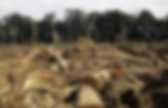

Les députés baissent drastiquement la taxe de l’huile de palme. Interview de Laurence Duthu, fondatrice et Présidente de l’association “L’Huile de Palme : NON !” – Le 4ème singe. Lhuile de palme se cache sous ces noms. L'huile de palme et palmiste ainsi que leurs dérivés sont souvent cachés sous différents noms qui peuvent cacher des origines diverses.
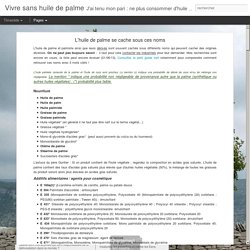
On ne peut pas toujours savoir : il faut pour cela contacter les industriels pour leur demander. Mes recherches sont encore en cours, la liste peut encore évoluer (01/06/13). Consultez le petit guide vert notamment pour comprendre comment retrouver ces noms avec 5 mots clefs ! La torture infligée aux orangs-outans pour de l'huile de palme en une photo. La torture infligée aux orangs-outans pour de l'huile de palme en une photo. Di NO al aceite de palma - VivaLeBio. El aceite de palma usado en nuestros alimentos industriales, cosméticos, productos de limpieza e incluso biocombustibles está causando un desastre ecológico y humanitario en muchos países del planeta.
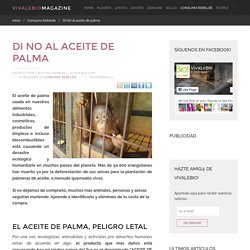
Más de 50.000 orangutanes han muerto ya por la deforestación de sus selvas para la plantación de palmeras de aceite, a menudo quemados vivos. Si no dejamos de comprarlo, muchos más animales, personas y selvas seguirán muriendo. Aprende a identificarlo y elimínalo de tu cesta de la compra. El aceite de palma, peligro letal La expansión de las monoplantaciones de aceite de palma por América del Sur, Africa y algunos países asiáticos como Indonesia, Malasia o Papúa Nueva Guinea se está llevando por delante los bosques y las selvas tropicales a marchas forzadas. Foto: Bebé orangután con su madre muerta. En los últimos 20 años, este hermano evolutivo nuestro ha visto destruido más del 90% de su hábitat. Medioambientalmente, el impacto de la deforestación en los ecosistemas es dramático. . . . Time to See the Forest for the Oil Palm Trees in Riau Row.
Riau province in Sumatra has more than seven million hectares of forest but less than two million hectares remain intact, thanks largely to oil palm plantations.
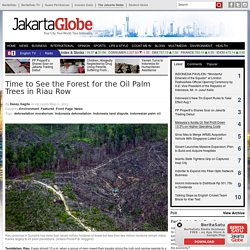
(Antara Photo/F.B. Anggoro) Tembilahan, Riau. Malaysian palm oil body encourages fiction over fact. In this commentary, David Dellatore, Program Manager at the Sumatran Orangutan Society, questions the value of the Malaysian Palm Oil Council's essay-writing contest which will pay contributors to conclude that palm oil is not a driver of deforestation.
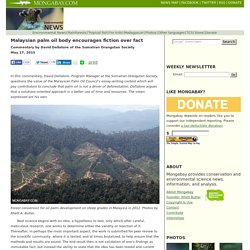
Dellatore argues that a solutions-oriented approach is a better use of time and resources. The views expressed are his own. Forest conversion for oil palm development on steep grades in Malaysia in 2012. Cuccioli di elefanti uccisi per l'olio di palma (FOTO) Decine di elefanti sono morti dopo essere stati avvelenati in questi ultimi anni a Sumatra per colpa dell’olio di palma.
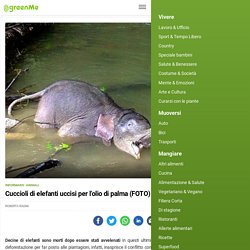
La deforestazione per far posto alle piantagioni, infatti, inasprisce il conflitto con gli esseri umani a causa della rapida distruzione dell’habitat degli elefanti. Distese immense di foresta pluviale sono state distrutte negli ultimi anni per far posto alle piantagioni e gli abitanti dei villaggi prendono sempre più di mira gli elefanti di Sumatra, che considerano come parassiti. Per questo continuano deliberatamente ad avvelenarli, per evitare che mangino il frutto della palma influendo negativamente sui profitti aziendali.
E a volte una fotografia vale più di mille parole. Demain l'Homme, ex SOS-planete : Boycott : Boycottons la graisse et l'huile de palme invasives, dénommées matière grasse ou huile végétale, nocive pour la santé. Acides gras saturés. Si notre coeur se sent loin des Orangs-Outans et des forêts tropicales, nos artères sont peut-être plus proches de nous.
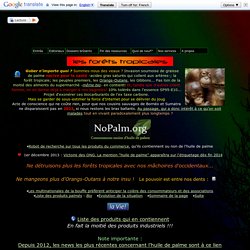
L'abus d'huile de palme bouche les artères, rend obèse et risque de nous faire succomber d'une crise cardiaque, ce qui est au passage une belle mort. Mais bon la souhaitons-nous? Non! Alors, ne serait-ce que pour notre santé, boycottons tout ce qui contient de l'huile de palme (dénominations "huiles végétales, graisses végétales, matière grasse végétale", puisque la législation s'en fout carrément!)
Palm Oil - Orangutan Foundation International Australia. What is Palm Oil?
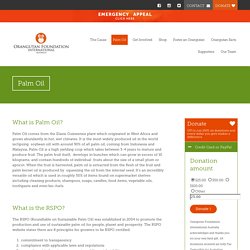
Palm Oil comes from the Elaeis Guineensis plant which originated in West Africa and grows abundantly in hot, wet climates. It is the most widely produced oil in the world (eclipsing soybean oil) with around 90% of all palm oil, coming from Indonesia and Malaysia. Palm Oil is a high yielding crop which takes between 3-4 years to mature and produce fruit. The palm fruit itself, develops in bunches which can grow in excess of 10 kilograms, and contain hundreds of individual fruits about the size of a small plum or apricot. With Compassion & Soul Inc. - THE PALM OIL ISSUE. The Tragic Truth Behind 'Alien-Like Creature' Caught On Film. Malaysian social media was abuzz over the weekend after footage emerged of a "strange" creature crawling through the ruined forests of a palm oil plantation, leading to speculation that it was alien in origin.
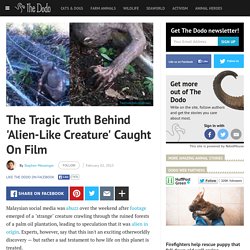
Experts, however, say that this isn't an exciting otherworldly discovery — but rather a sad testament to how life on this planet is treated. (YouTube/The Borneo Post SEEDS) No, This Isn't An Alien. Contrary to speculation, a strange-looking animal crawling through the wreckage of a palm plantation is not from another planet.
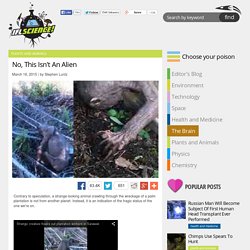
Instead, it is an indication of the tragic status of the one we're on. The video features a sun bear, which when healthy looks like this: Credit: Cuson via Shutterstock. What a healthy sun bear looks like. Exactly why the creature in the video looks more like Gollum is not yet known. “We were shocked. On social media sites, the distressed creature was dubbed the "Malaysian Chupacabra" after the mythical creature some people thought was captured last year. Facebook group Nature Talks Back have used the video to draw attention to the plight of animals in Borneo. Sun bears (Helarctos malayanus) are among the species threatened as a result, having already been wiped out from more than half their previous range. Anyone spurred to action by the piteous sight might wish to start by consuming products made with sustainable palm oil, or avoiding the product entirely. Non, cette étrange créature n'est pas un alien. Bienvenue à Bornéo.
Voici une vidéo à la fois très étrange et très triste.
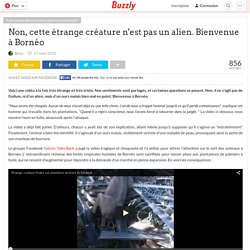
Nos sentiments sont partagés, et certaines questions se posent. Non, il ne s'agit pas de Gollum, ni d'un alien, mais d'un ours malais bien mal en point. Bienvenue à Bornéo. "Nous avons été choqués. GREEN. No, This Isn't An Alien. Contrary to speculation, a strange-looking animal crawling through the wreckage of a palm plantation is not from another planet. Instead, it is an indication of the tragic status of the one we're on. The video features a sun bear, which when healthy looks like this: Credit: Cuson via Shutterstock. What a healthy sun bear looks like. Exactly why the creature in the video looks more like Gollum is not yet known. “We were shocked. On social media sites, the distressed creature was dubbed the "Malaysian Chupacabra" after the mythical creature some people thought was captured last year. Facebook group Nature Talks Back have used the video to draw attention to the plight of animals in Borneo.
Sun bears (Helarctos malayanus) are among the species threatened as a result, having already been wiped out from more than half their previous range. Anyone spurred to action by the piteous sight might wish to start by consuming products made with sustainable palm oil, or avoiding the product entirely. Green a film by Patrick Rouxel needs to be broadcast on the BBC. Éléphants empoisonnés pour l'huile de palme. VIDEO: Say no to dirty palm oil. Palm oil is a staple food for millions of people worldwide, and it is an ingredient or component of 50% of packaged consumer products, from chocolate, to biodiesel, to shampoo. As a commodity, its ubiquity, high yield, and versatility of uses make it virtually irreplaceable.
In the US alone, imports of palm oil have increased by a factor of five in the last decade. However, some producers have sought to exploit the versatility and growing popularity of palm oil to make a quick buck. They have cleared ancient forestland in vulnerable places, putting the lives of its human and animal inhabitants at risk. VIDEO: Say no to dirty palm oil. Huile de palme : Danger ! Le fonds souverain Norvégien arrête l'huile de palme.